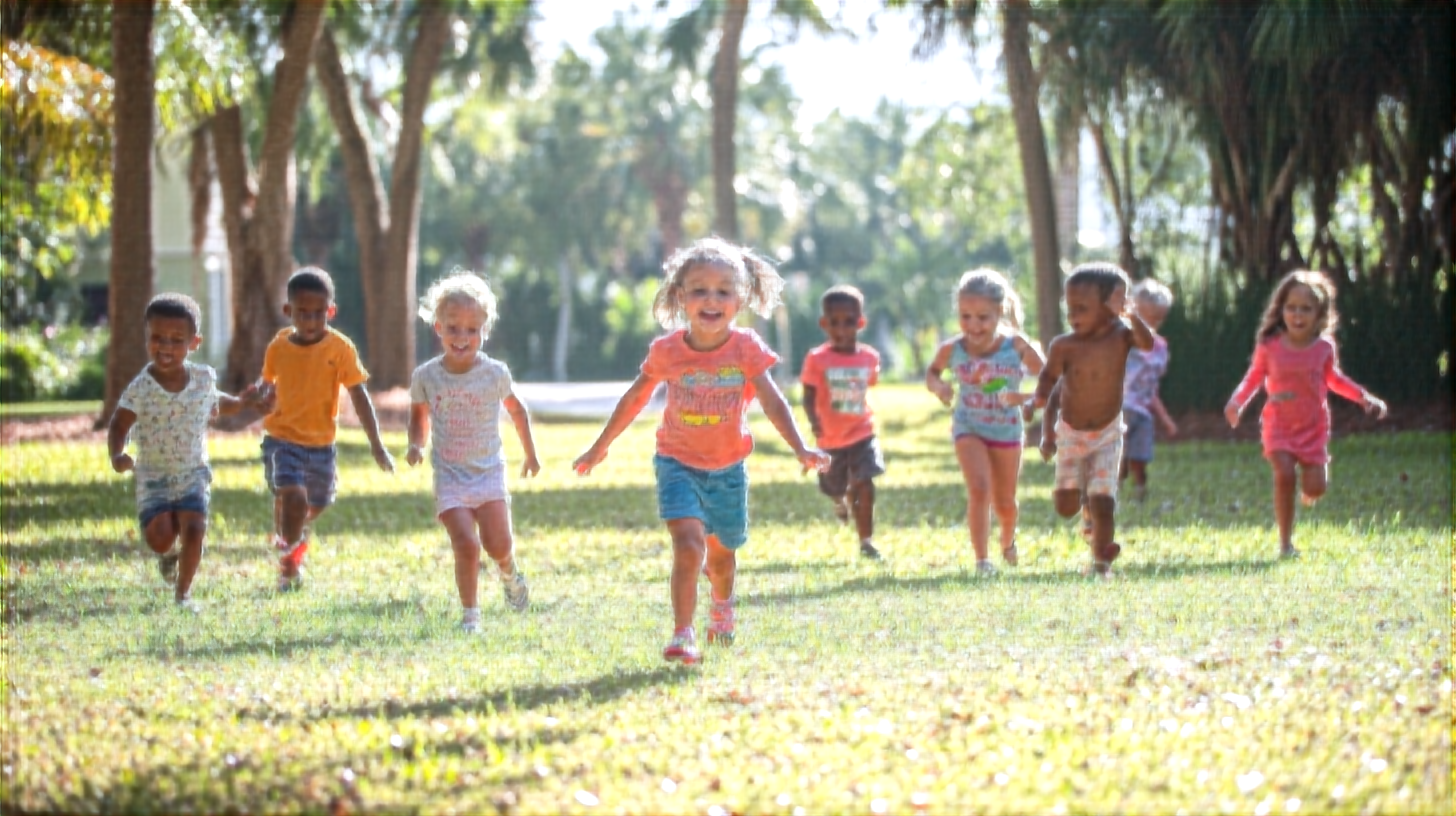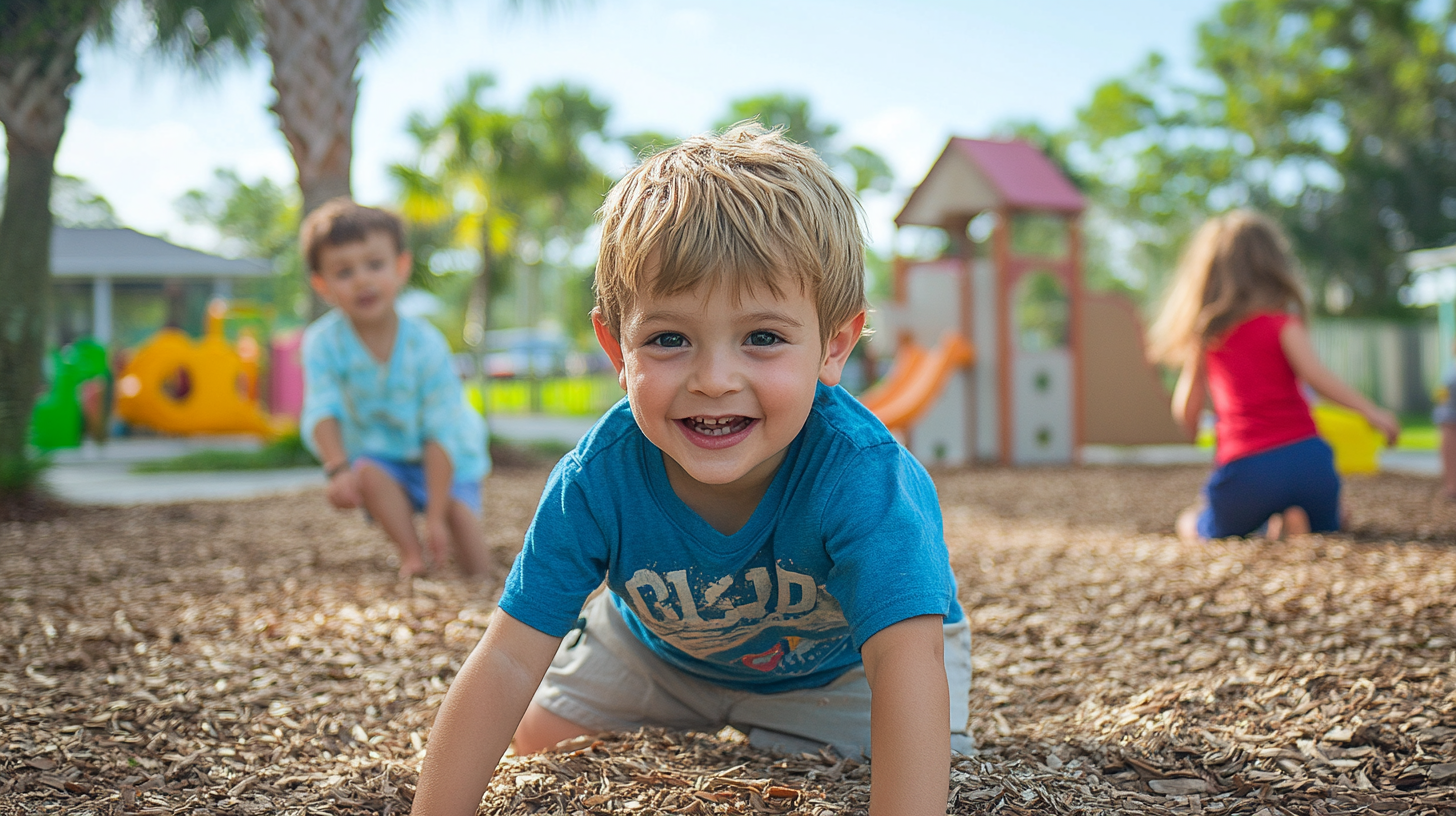Understanding the importance of play in toddler development is crucial for parents and caregivers. At Fort Myers Daycare, we emphasize play as a fundamental part of our curriculum. Through play, toddlers learn essential skills that shape their cognitive, physical, and social development. In this article, we will explore the role of play in toddler development and how our daycare facilities in Fort Myers support this vital aspect of early childhood growth.
Why Play Matters in Toddler Development
Play is more than just fun and games for toddlers. It is a vital component of their growth and development. Here are several reasons why play is so important:
Cognitive Development
Play stimulates brain development and function. Activities like puzzles, building blocks, and interactive toys encourage problem-solving skills, memory, and concentration. When toddlers engage in these activities, they develop critical thinking skills and learn how to approach challenges.
Physical Development
Physical play helps toddlers develop their motor skills. Running, jumping, climbing, and other physical activities enhance their coordination, balance, and overall physical health. Playgrounds and structured physical activities at Fort Myers Daycare are designed to promote physical development safely and effectively.
Social and Emotional Development
Through play, toddlers learn to interact with their peers, share, take turns, and resolve conflicts. These social interactions are crucial for developing empathy, cooperation, and emotional regulation. Play also allows children to express their feelings and understand the emotions of others.
Language Development
Engaging in play with peers and caregivers significantly contributes to language development. Activities that involve storytelling, singing, and role-playing enhance vocabulary and communication skills. Fort Myers Daycare incorporates these activities to foster language growth in toddlers.

Types of Play and Their Benefits
Different types of play contribute uniquely to toddler development. Here are some of the key types of play and their benefits:
Free Play
Free play is unstructured and allows toddlers to use their imagination and creativity. This type of play is essential for developing independence and decision-making skills. It gives children the freedom to explore their interests and learn at their own pace.
Structured Play
Structured play involves activities with specific rules and objectives. This type of play helps toddlers understand the concept of rules, follow instructions, and develop discipline. Examples include board games, organized sports, and guided art projects.
Sensory Play
Sensory play involves activities that stimulate the senses—touch, sight, sound, smell, and taste. Playing with sand, water, playdough, and sensory bins helps toddlers explore the world around them and enhances sensory processing skills.
Pretend Play
Pretend play, or imaginative play, allows toddlers to role-play different scenarios. This type of play is crucial for developing creativity, problem-solving skills, and understanding social roles. It also helps children process their experiences and emotions.
The Role of Toys in Toddler Development
Toys play a significant role in facilitating play and development in toddlers. The right toys can enhance learning and growth. Here are some categories of toys that are beneficial for toddler development:
Educational Toys
Educational toys are designed to promote learning and development. Examples include alphabet blocks, counting toys, and shape sorters. These toys help toddlers develop cognitive skills, such as counting, recognizing letters, and understanding shapes.
Interactive Toys
Interactive toys, such as talking dolls and electronic learning devices, engage toddlers in active learning. These toys often incorporate elements of language, music, and movement, which contribute to cognitive and language development.
Physical Activity Toys
Toys that encourage physical activity, like tricycles, balls, and climbing structures, help toddlers develop their motor skills and coordination. These toys promote physical health and fitness.
Creative Toys
Creative toys, such as crayons, paint, and building blocks, allow toddlers to express their creativity and imagination. These toys also help develop fine motor skills and hand-eye coordination.
Incorporating Play into Daily Activities at Fort Myers Daycare
At Fort Myers Daycare, we integrate play into our daily activities to support toddler development. Here’s how we do it:
Play-Based Curriculum
Our curriculum is designed around play-based learning. We create an environment where toddlers can explore, discover, and learn through play. Activities are tailored to meet the developmental needs of each child, ensuring a balanced approach to learning.
Safe and Stimulating Environment
We provide a safe and stimulating environment that encourages exploration and creativity. Our daycare facilities are equipped with age-appropriate toys and play structures that promote physical, cognitive, and social development.
Qualified Caregivers
Our caregivers are trained to facilitate play and support toddler development. They engage with children in meaningful ways, guiding them through activities and encouraging positive interactions with their peers.
Regular Outdoor Play
Outdoor play is a vital part of our daily routine. We have safe outdoor play areas where toddlers can run, climb, and explore nature. Outdoor play promotes physical health and provides opportunities for sensory exploration.
Parent Involvement
We believe that parental involvement is crucial for a child’s development. We encourage parents to participate in their child’s play activities and provide resources and ideas for play at home. This collaboration ensures continuity in the child’s learning and development.

The Impact of Play on Toddler Speech Development
Play is particularly beneficial for speech development in toddlers. Here are some ways play supports language growth:
Encouraging Verbal Interaction
During play, caregivers and peers engage in conversations with toddlers, encouraging them to use and expand their vocabulary. Asking open-ended questions and prompting toddlers to describe their actions enhances verbal skills.
Role-Playing and Storytelling
Role-playing and storytelling activities allow toddlers to practice language skills in a fun and engaging way. These activities help children learn new words, understand sentence structures, and improve their storytelling abilities.
Exposure to Language-Rich Environments
At our Fort Myers Daycare, we create language-rich environments where toddlers are exposed to a variety of words and phrases. Singing songs, reading books, and engaging in conversations throughout the day contribute to language development.
Conclusion
Play is an essential aspect of toddler development, contributing to cognitive, physical, social, and emotional growth. At our Fort Myers Daycare, we recognize the importance of play and incorporate it into our daily activities to support the holistic development of each child. By providing a safe, stimulating, and nurturing environment, we ensure that toddlers have the opportunity to learn and grow through play. If you’re looking for a daycare that prioritizes your child’s development through play, consider Fort Myers Daycare. Together, we can support your child’s journey to a bright and successful future.
Get in Touch with Open Doors Preschool
Are you interested in providing your child with a nurturing environment that prioritizes their developmental needs? At Open Doors Preschool, we are committed to offering a supportive and enriching space for your little one to thrive. Our dedicated staff and carefully designed curriculum ensure that each child receives personalized attention and opportunities for growth. To learn more about how we can support your child’s early education journey or to schedule a visit, please contact us today! We look forward to welcoming your family into the Open Doors community.

